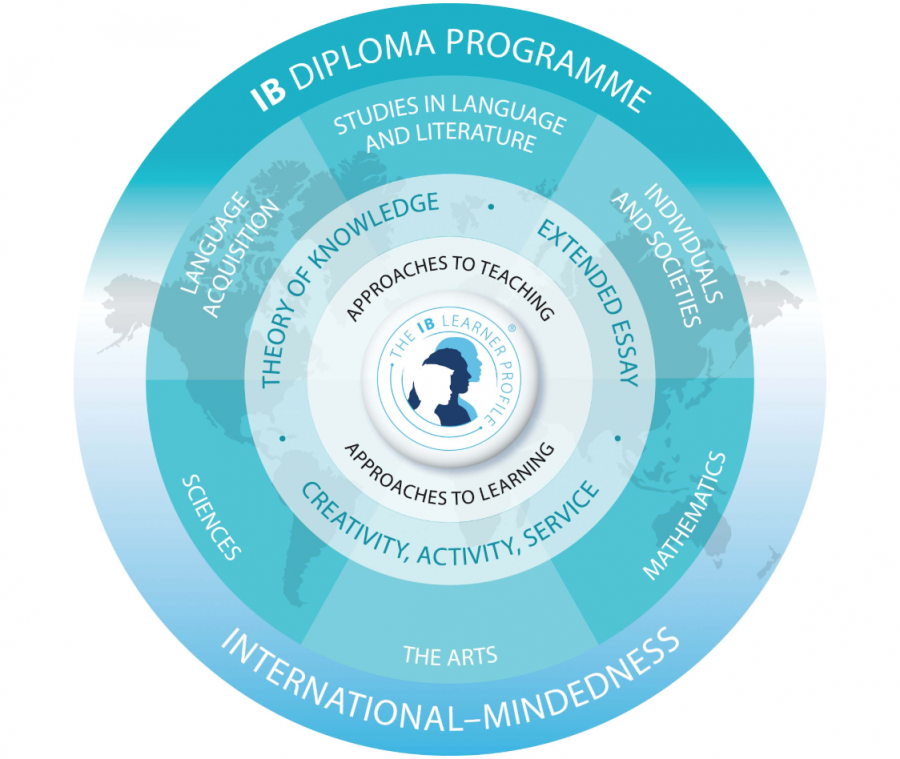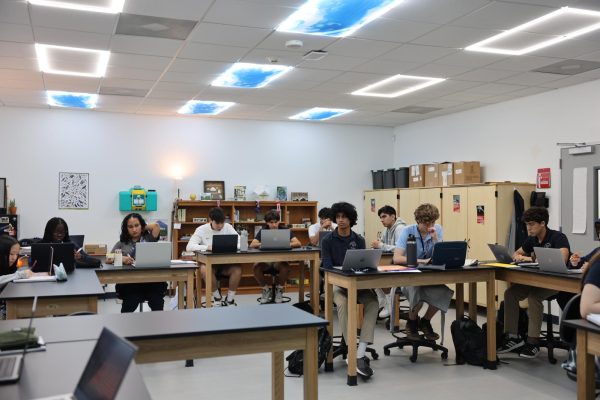The International Baccalaureate Diploma: Who is Right For?
The International Baccalaureate Diploma (IB) is undeniably a name with echoes across the world- for better or for worse. Seen by many as a rigorous program designed for high school-aged students that offers a challenging curriculum yet differs from its counterpart, Advanced Placement (AP) because of its all encompassing requirements, IB looks like a pretty impressive load.
However, to the more than 150,000 students worldwide currently working towards graduating with that ever-so-sought after IB Diploma in hand, IB is almost certainly synonymous with sleepless nights, cram sessions, and Internal Assessment after Internal Assessment (IA). So for incoming juniors, who are currently considering course selection, the question of whether the IB program is worth it is sure to come into mind. The answer? It varies.
There are a lot of targets to hit on the journey towards completion of the IB program. Considered one of the most in-depth college preparatory programs, requirements for completion not only include a heavy amount of coursework (at least 3 higher level courses), but also participation in CAS (Community, Activity, and Service), and the writing of the Extended Essay (a 4,000 word essay on the topic of the candidate’s choice).
Exactly- it’s a lot. But is it worth it?
“Whenever we have students who come in who are not sure on whether or not they want to be an IB diploma program or not, one of the conversations has to do with what their thoughts are where they want to attend university,” says Mr. Eric Ostergren, the head college counselor.
When it comes to international recognition, not a single diploma is more widely recognized than the International Baccalaureate. For students looking to apply to international universities, such as in Europe or Australia, IB is guaranteed to be understood by all admissions officers and can help differentiate your application from other students applying from America.
However, the IB diploma is also highly sought after for American universities, as well. Because of the advanced curriculum, many universities in the US allow diploma recipients to enter into college as a sophomore.
According to the International Baccalaureate Organization, “Some universities allow IB students to enter their institution as second-year students, meaning the undergraduate education will be three years instead of four.”
IB was also designed to promote exploration into personal topics of interests and the development of skills required at the university level. The Extended Essay meets these quotas. As a mandatory 4,000 word essay on the topic of the student’s choice, extended essay is an assignment that must be submitted at the beginning of senior year. An immense amount of research and, for science projects, experimentation, must be completed in order to fulfill this requirement, thus allowing students to practice in data collection and writing that are expected by many colleges.
Because of this, the extended essay can be seen as both a pro and a con. For some, dedicating hours to a topic they are passionate about might seem like an advantage to the program. However, for others, finishing this essay alongside an already large amount of coursework can be time-consuming.
CAS is another element of IB that allows students to allocate time to their own interests. CAS, which stands for Creativity, Activity, and Service is essentially an aspect of IB that measures how students spend their time outside of academics and what pursuits they dedicate time to on their own. Community service projects, clubs such as Model United Nations, and even trying new skills such as driving for the first time, all count as CAS experiences. Through CAS, students are encouraged not only to excel academically but as citizens and as people.
That said, IB is a two year long program- one that will run from the beginning of junior year and end when seniors graduate, so coursework and material covered is expected to be retained for IB exams for over two years. While most other diploma programs simply test annually, IB students need to maintain the knowledge for a significantly longer period of time. The Village School, in order to help students with this requirement, tends to mandate that even normal tests, which count towards semester grades, are cumulative. This means that students must prepare for unit tests in a way that reviews both current and previous information, which can be time-consuming and stressful.
The majority of the workload, however, comes from the difficulty of content covered. Full IB candidates are required to enroll in at least 3 HL classes by senior year, which covers a greater amount of material and larger range of content. Presentations, orals, in-class discussions, and internal assessments are all aspects of HL classes that students are expected to display proficiency in- which means that students have to be able to actively apply information learnt in class to different mediums.
“I absolutely believe that the IB Diploma program is worth it! It is one of those journeys that is really difficult when you are in the middle of it, but once it is over, you are so glad that you took it,” said Ms. Kerri Peters, the IB Diploma Coordinator at Village. “I love when alumni come back and visit after their first semester of college and tell me how well they are doing and how well the IBDP [IB Diploma Program] prepared them!”
While IB might present some challenges to prospective students, there are definite benefits to enrolling in the program. Becoming a global citizen, maintaining both active participation in academics and extracurricular activities, and exploring personal interests are all aspects that IB candidates can explore during their two years in the program. With many things to take into consideration, the decision to IB is ultimately one that depends on the situations and interest of each individual.

Anna Zhu is currently a senior and has been attending The Village School for fourteen years. Having served as Copy Editor and Design Editor previously,...





